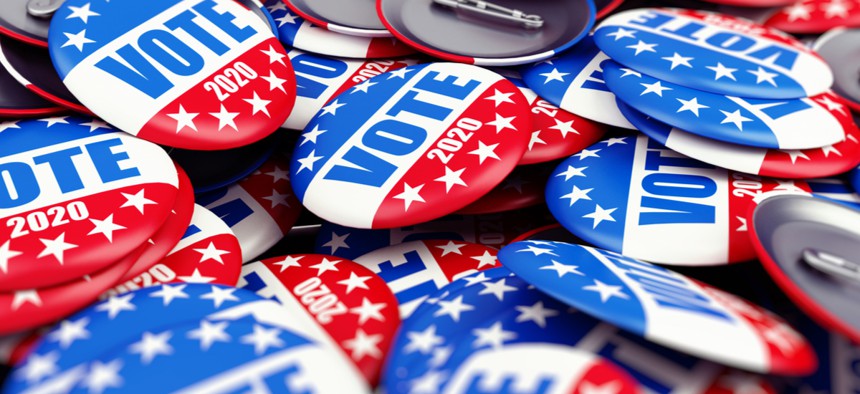Nevada Governor Vetoes Popular Vote Effort

Fourteen states and the District of Columbia have thus far joined a nationwide effort to essentially bypass the electoral college at the state level. Shutterstock
The bill would have directed Nevada's six electoral college votes to the winner of the national popular vote in presidential elections.
Nevada won't be joining the movement to sidestep the Electoral College after Gov. Steve Sisolak vetoed a bill that would have pledged the state's six electoral votes to follow the winner of the national popular vote.
Assembly Bill 186, vetoed Thursday, would have added Nevada to the National Popular Vote Interstate Compact, an effort to ensure that the popular vote will decide future presidential contests. The cause has been championed mostly by Democrats, with 14 states and the District of Columbia so far signing on.
Sisolak, a Democrat, said in a statement that joining the interstate agreement “could diminish the role of smaller states like Nevada in electoral contests and force Nevada’s electors to side with whoever wins the nationwide popular vote, rather than the candidate Nevadans choose.”
The Nevada Republican Party applauded the move on Twitter, saying Sisolak “realized the importance of our voice in the presidential process” by vetoing legislation that was “pushed through by radical Democrats in the Legislature.”
Several Democrats voted against the measure in the Nevada Assembly, though most were in favor of the bill.
The popular vote measure will take effect nationwide only if it’s passed by states comprising a majority of the country’s 538 electoral votes. Fourteen states (California, Colorado, Connecticut, Delaware, Hawaii, Illinois, Maryland, Massachusetts, New Jersey, New Mexico, New York, Rhode Island, Vermont, Washington) and the District of Columbia, possessing 189 electoral votes, have done so. Eighty-one additional votes are needed. Sisolak’s veto dealt a blow to the measure’s progress—just eight other states, possessing 76 electoral votes, are currently considering similar bills.
The nationwide effort took root after the 2016 presidential election, where President Donald Trump became the second candidate in three elections to win the highest office while losing the popular vote.
Trump did not win the state of Nevada in 2016. Legislators there had tried, and failed, twice previously—once in 2009 and again in 2017—to enact similar legislation.
“I recognize that many of my fellow Nevadans may disagree on this point and I appreciate the legislature’s thoughtful consideration of this important issue,” Sisolak said. “As Nevada’s governor, I am obligated to make such decisions according to my own conscience. In cases like this, where Nevada’s interests could diverge from the interests of large states, I will always stand up for Nevada.”
Kate Elizabeth Queram is a Staff Correspondent for Route Fifty and is based in Washington, D.C.
NEXT STORY: A City Considers Criminalizing Racially-Motivated 911 Calls





